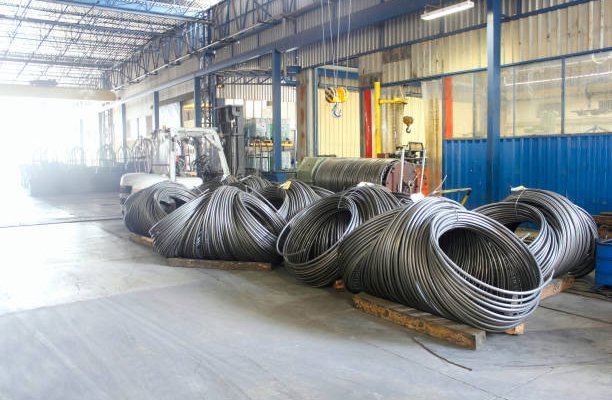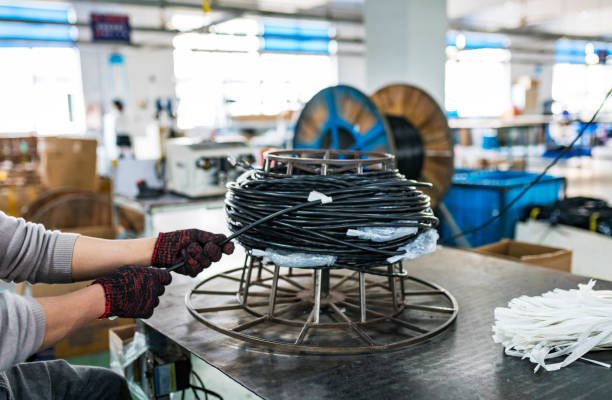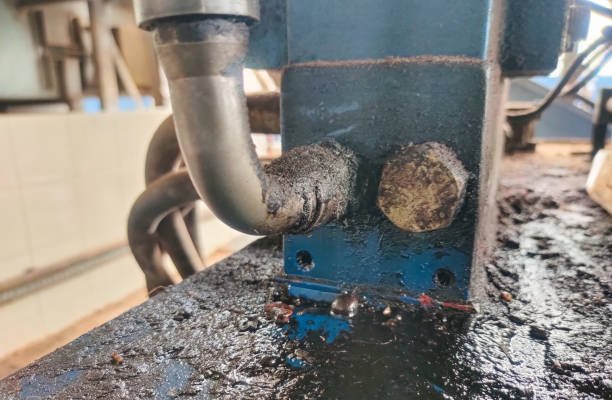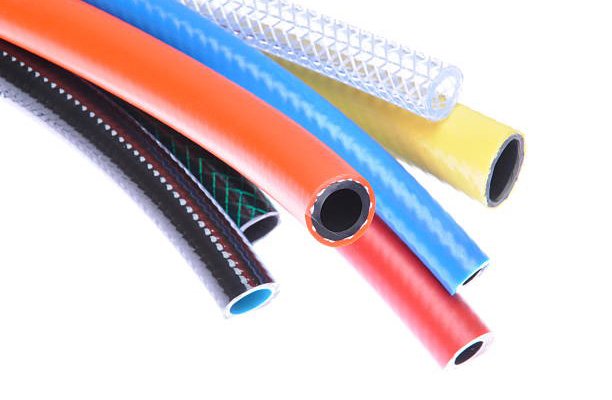Hydraulic hoses are like the lifelines of modern machinery. Whether you’re running heavy equipment on a construction site or maintaining a factory line, chances are, you’ll need hydraulic hoses to keep everything running smoothly. But here’s the million-dollar question (well, maybe not quite a million): How much do hydraulic hoses actually cost?
In this blog, we’ll explore everything you need to know about hydraulic hose pricing. From the cost of standard hoses to high-pressure or custom-made ones, we’ll help you understand what affects pricing, how to choose the right hose, and even where to save a buck or two. Ready to dive in? Let’s get to it!
Factors That Determine Hydraulic Hose Costs
Hydraulic hose costs can range anywhere from a few dollars to several hundred dollars. Why? It all depends on a few key factors:
1. Material Type
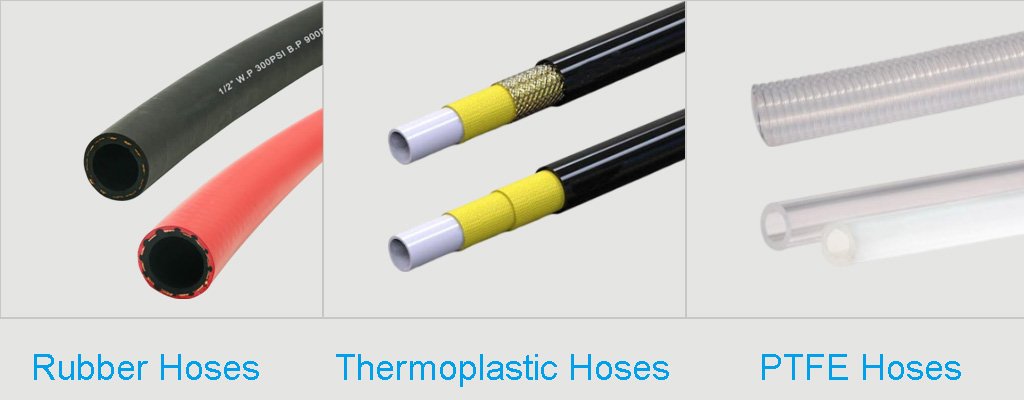
The material used to make the hydraulic hose is one of the biggest factors in determining cost. Here’s a closer look at the options:
- Rubber Hoses:
Rubber is the most common material for hydraulic hoses due to its durability and flexibility. They’re great for general-purpose applications but aren’t ideal for extreme temperatures or heavy-duty operations. Rubber hoses are widely available and cost anywhere from $5 to $30 per foot. - Thermoplastic Hoses:
These hoses are made from synthetic materials and are more lightweight and resistant to chemicals than rubber hoses. They’re ideal for industries like food processing or chemical handling. However, they tend to cost more, usually between $10 and $40 per foot. - Metal Reinforced Hoses:
For high-pressure and high-temperature environments, metal-reinforced hoses are a must. They can withstand extreme conditions but come with a higher price tag—$30 to $75 per foot.
Pro Tip: For most small- to medium-scale uses, rubber hoses provide the best balance of cost and performance.
2. Hose Size (Diameter and Length)
Hydraulic hoses come in various sizes, and size directly impacts price.
- Diameter:
Smaller-diameter hoses, such as those with a 1/4-inch inner diameter, are the most affordable ($5–$20 per foot). Larger hoses, such as 1-inch or 2-inch diameters, cost significantly more—upwards of $40–$100 per foot.
Larger diameters are typically used for high-flow applications, while smaller hoses work for precise tasks. - Length:
While the price per foot is straightforward, the total length needed for your application will also determine the overall cost. For example, a 20-foot hydraulic hose at $10/foot will cost $200. However, some suppliers offer bulk discounts for large orders.
Pro Tip: Always measure your required length accurately to avoid overpaying for unnecessary material.
3. Pressure Rating
The pressure rating (measured in PSI) indicates how much pressure a hose can safely handle.
- Low-Pressure Hoses (Up to 1,000 PSI): These are suitable for simple applications like low-pressure hydraulic pumps or fluid transfer. They are affordable, costing around $5–$20 per foot.
- Medium-Pressure Hoses (1,000–3,000 PSI): Perfect for most standard hydraulic systems, these hoses cost between $20 and $50 per foot.
- High-Pressure Hoses (Above 3,000 PSI): Designed for heavy-duty applications like construction or industrial machinery, these can cost $50 to $150 per foot or more.
Higher pressure ratings require more durable materials and reinforcements, which naturally increase costs.
4. Brand Reputation
The brand of the hydraulic hose can also impact the cost. Leading brands like Parker, Gates, and Eaton are known for producing high-quality hoses that last longer but are more expensive.
- Budget Brands: $5–$30 per foot
- Premium Brands: $30–$100 per foot
Investing in a reputable brand can save you money in the long run since these hoses are less likely to fail prematurely.
5. Customizations and Fittings
If you need a hose with special features, fittings, or reinforcements, expect the cost to go up. Some common customizations include:
- Special thread types or quick-connect fittings ($20–$50 per fitting).
- Colored or labeled hoses for specific applications.
- Extra reinforcements for extreme conditions.
Custom-made hydraulic hoses can cost anywhere from $50 to $500, depending on the level of customization.
6. Additional Costs (Labor, Shipping, etc.)
Beyond the cost of the hose itself, don’t forget about installation and shipping fees:
Shipping: Large or heavy hoses may incur shipping costs of $20–$100.
Installation: Professional installation can cost $50 to $200 depending on complexity.
Average Cost of Hydraulic Hoses by Application
Hydraulic hoses are used across a wide variety of industries. Here’s a closer look at how costs differ based on their application:
Agricultural Equipment
Tractors, harvesters, and other agricultural equipment require hydraulic hoses for tasks like lifting, steering, and braking.
- Cost Range: $10–$50 per foot
- Pressure Rating: Typically low to medium pressure (up to 3,000 PSI).
- Special Considerations: Choose hoses with resistance to UV rays and weather conditions since they’ll likely be exposed to outdoor elements.
Construction Equipment
Heavy machinery like excavators and bulldozers demand high-pressure hoses that can handle extreme loads.
- Cost Range: $30–$100 per foot
- Pressure Rating: High-pressure hoses (above 3,000 PSI) are essential.
- Special Considerations: Look for abrasion-resistant coatings to prevent wear and tear on job sites.
Automotive Applications
Hydraulic hoses in cars are often used for power steering and brakes.
- Average Cost: $20–$70 per foot
- Replacement Frequency: Every 3–5 years
Industrial Machinery
Factories and production lines need highly durable hoses for continuous operations.
- Average Cost: $50–$150 per foot
- Replacement Frequency: Every 1–2 years
Should You Buy Pre-Made or Custom Hydraulic Hoses?
When buying hydraulic hoses, you have two main options: pre-made hoses or custom-made hoses. Here’s a quick comparison:
| Feature | Pre-Made Hoses | Custom Hoses |
|---|---|---|
| Price | Lower ($5–$50) | Higher ($50–$500) |
| Flexibility | Limited sizes | Tailored to your needs |
| Delivery Time | Immediate availability | Takes longer to produce |
| Durability | Standard quality | Potentially higher quality |
If you’re working with standard equipment and want to save some money, pre-made hoses are a good choice. However, for unique machinery or high-pressure applications, custom hoses are often worth the investment.
Where to Buy Hydraulic Hoses?
When it’s time to purchase hydraulic hoses, finding the right supplier can save you money and ensure you get the quality you need. Below are some of the most common places to source hydraulic hoses, including options for bulk orders and custom manufacturing.
Local Retailers
Local industrial supply stores and hardware shops often carry a variety of hydraulic hoses. These stores are great for smaller purchases or when you need a standard hose quickly.
Examples: Industrial equipment stores or chain retailers like Home Depot (for basic hoses).
Pros: Immediate availability, in-person assistance, and no shipping costs.
Cons: Limited selection of sizes, materials, and customization options.
Online Retailers
Online platforms make it easy to compare prices and browse a wide selection of hoses. Popular e-commerce websites also frequently offer discounts, making them a cost-effective option.
- Pros: Competitive pricing, wide selection, and convenience.
- Cons: Shipping fees and delays, no physical inspection before purchase.
- Examples: Amazon, Grainger, McMaster-Carr, and HydraulicsDirect.com.
Pro Tip: When buying online, make sure to double-check product specifications and read customer reviews to ensure compatibility with your system.
Specialized Dealers
For premium brands and high-quality hoses, look for specialized hydraulic supply dealers. These companies often carry a full range of hoses, fittings, and accessories for all kinds of applications.
Examples: Parker Hannifin distributors, Gates dealers, Eaton suppliers.
Pros: Access to top brands like Parker, Gates, and Eaton; expert advice; and high-quality products.
Cons: Higher costs and possibly limited local availability (though many offer online ordering).
Bulk Suppliers
If you’re running a business or regularly need a large volume of hoses, bulk suppliers are your best bet. They offer competitive pricing on large orders, which is ideal for reducing the cost per foot of hydraulic hoses.
- Pros: Discounts on bulk purchases, cost efficiency, and supply consistency.
- Cons: Large upfront investment and storage requirements.
- Examples: Goodyear Rubber Products, Amazon Business, and Bulk Hydraulic Hose suppliers from industrial distributors.
Pro Tip: Contact bulk suppliers directly to negotiate better rates and explore package deals that include fittings or accessories.
Customized Manufacturers
For unique applications that require non-standard sizes, materials, or fittings, a customized hydraulic hose manufacturer is the way to go. These companies can build hoses to your exact specifications, whether you need higher pressure ratings, specific fittings, or specialized materials.
- Pros: Tailored solutions, higher durability, and compatibility with your unique system.
- Cons: Longer production times and higher upfront costs.
- Examples:
- Gates Custom Solutions: Offers tailored hoses for industrial and mobile applications.
- Parker Hose Assemblies: Specializes in custom-built hoses with a variety of fittings and reinforcements.
- Taske Hydraulics: Provides bespoke solutions with a focus on heavy-duty and high-pressure systems.
Second-Hand and Surplus Markets
If you’re on a tight budget, second-hand hydraulic hoses or surplus inventory might be worth considering. These are often sold by businesses that have excess stock or no longer need specific parts.
- Pros: Significant cost savings.
- Cons: Risk of wear and tear, no warranties, and limited availability of specific sizes or materials.
- Examples: eBay, local industrial surplus shops, or liquidation sales.
Tips to Save Money on Hydraulic Hoses
Who doesn’t like saving a few bucks? Here are some tips to keep your costs in check:
- Buy in Bulk: If you frequently need hoses, buying in bulk can reduce the per-foot cost.
- Shop Around: Don’t settle for the first quote. Compare prices from multiple retailers.
- Stick to What You Need: Avoid over-specifying. If your application doesn’t require a high-pressure or custom hose, go for a standard option.
- Maintain Your Hoses: Regularly inspect and clean your hoses to extend their lifespan and reduce replacement costs.
- Look for Deals: Keep an eye out for sales or discounts, especially from online retailers.
Conclusion
Hydraulic hoses may not be the flashiest part of your machinery, but they sure are critical. As we’ve seen, their costs can vary widely depending on material, size, pressure rating, and other factors. While a standard rubber hose might set you back $5 per foot, a high-pressure, custom-made option could run you hundreds of dollars.
Before making a purchase, take the time to evaluate your specific needs and budget. Compare prices, consider the long-term value of durable hoses, and don’t hesitate to consult with a professional if you’re unsure. After all, a well-chosen hydraulic hose can keep your equipment running like a charm and save you money in the long haul.
FAQs
Q1: How often do hydraulic hoses need to be replaced?
A: On average, hydraulic hoses last 3–5 years. However, their lifespan depends on usage, pressure, and maintenance.
Q2: Can I install hydraulic hoses myself to save money?
A: Yes, if you have the tools and experience. Otherwise, it’s best to hire a professional to ensure proper installation.
Q3: Are cheap hydraulic hoses worth it?
A: While budget-friendly hoses may save you money upfront, they might wear out faster. Investing in quality can save you money in the long run.
Q4: Do hydraulic hose prices vary by region?
A: Yes, prices can differ based on local demand, availability, and shipping costs.
Q5: What’s the best material for hydraulic hoses?
A: Rubber is versatile and affordable, while thermoplastic and metal hoses are better for specialized applications.
Q6: Are custom hoses worth the extra cost?
A: If your system has unique requirements or operates in demanding conditions, custom hoses can provide better performance and durability, making them worth the investment.

